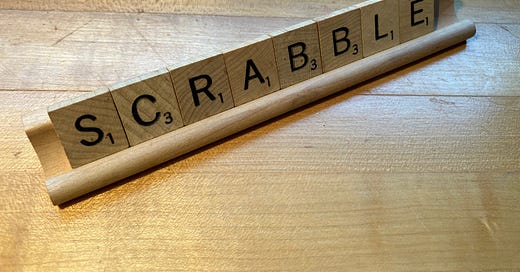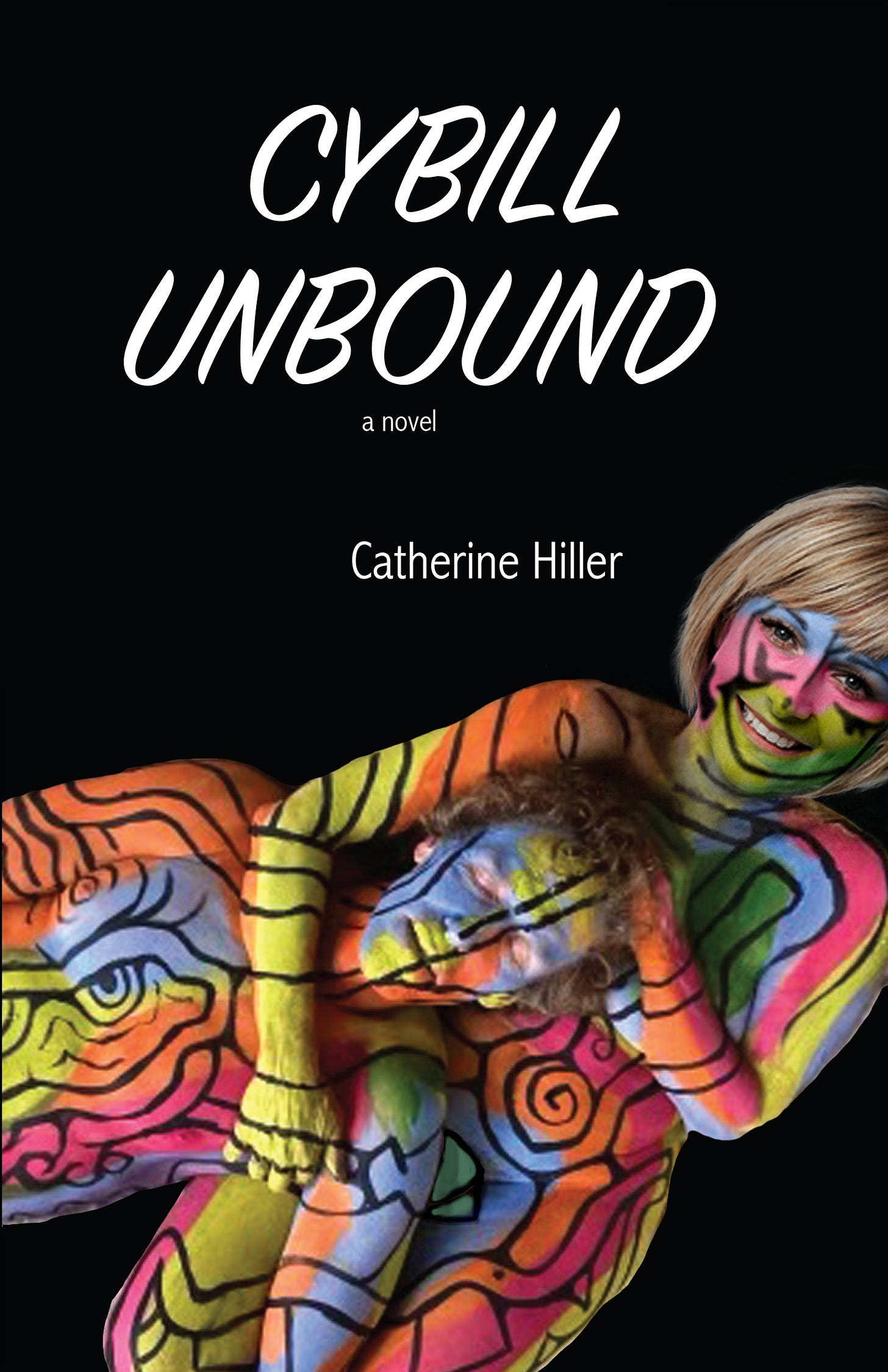Among my friends and acquaintances, word games are a sweet and reliable source of pleasure. There are some friends who WORDLE. There are others who do the crossword puzzle, or perhaps the mini, in the New York Times. My husband and I and a California friend are fond of the weekly Spelling Bee in the NYT Magazine each week. I know there’s a daily electronic one, but once a week is fine, thank you, and I often linger on it until Tuesday, not happy until I reach Genius, which happens only about half the time. The others in this trio are better, often scoring G + 2, but once in a while, I can tie one of them.
But Scrabble is the queen of word games for me. It’s complex and strategic and depends on word knowledge. The game is best played with two people (otherwise the waiting becomes tedious), and perhaps that’s why I like it. It’s a direct competition with somebody else, mind against mind, another human present, not just yourself. You’re in one room, with another person.
At least until recently. Now online Scrabble and the like are commonly played. Scrabble Go launched in March 2020 and soon it had 2.5 million players. Words with Friends claims 6.7 million daily users.
New phenomena inevitably attract writers. When fiction writers build their worlds, they find themselves unwittingly including these new things.
Today I realize I’ve written fiction about online Scrabble not once, but twice in my recent fiction, so on this summer’s day, let me do something completely new here at The Pleasure Principle, which is to share some of my fiction. Here’s 1) a short excerpt from my most recent novel and 2) three brief excerpts from a new piece of flash fiction, one of a trilogy (yes, a trilogy of flash fiction)!
From Chapter 9, “The Facebook Lover,” Cybill Unbound
. . . One night while they were chatting on Facebook, Lucas asked if she wanted to play Scrabble. Cybill liked the game but didn’t think virtual Scrabble would be any fun. She would have wanted to play holding Lucas’s arm and watching his expression turn to alarm when she laid down seven tiles. In the actual world, they had never spent enough time together for board games, but now, thirty miles apart at midnight, she saw that playing Scrabble online might be another way of connecting, so Cybill said yes.
Soon it became clear that Lucas was the superior player, making two and three and sometimes even four words a turn. When she remembered to look at the two-letter word list Facebook Scrabble obligingly provided, she began getting good scores herself, but then he made a seven-letter word (a “bingo” with a 50-point bonus) and she could never get close to him after that. This was a great relief, even a turn-on, to Cybill. She hated losing games to women, but she didn’t mind losing to men. Indeed, she preferred it that way.
Lucas beat her by 85 points, and she felt her desire for him surge . . .
If you’d like to read more . . .
https://amzn.to/3KrHMEv
I do like writing novels, but sometimes a short story asks to be written—occasionally one that’s very short indeed. In our busy lives, flash fiction has become increasingly popular. Defined, variously, as fiction under 1500, 500 and even 200 words, its major characteristic is its brevity. Many claim it is not just a very short story: it has a different shape and intention.
I can’t put the whole flash fiction piece out here because to do so would jeopardize its future publication chances. So here are three bits, starting with the very beginning. The story is 837 words. Some of you might guess the end!
From “syntaxninja,” a new piece of flash fiction
At first it seemed like a random spattering of letters, but then she broke it down into the two words, “syntax ninja,” and she began to smile. Just from the handle, she knew she would get a good game. Phoebe had played WordFeud, an online Scrabble clone, a dozen times since her son Steve had given it to her six weeks earlier—that is, four months into her widowhood. Steve, a book editor, was worried about her being lonely. She thought she might play with him, but he said he was too busy, so she played with the strangers who asked her, always winning by lopsided scores. In her last game, with a person called $green$, she made three bingos, and the score was 530-152. Because of his handle, she was glad to beat him like this (somehow, she was sure it was a man). She wondered why the algorithm didn’t match her up with better players.
a little later on
Phoebe stared at the letters in her electronic rack. They shimmered with possibility. She had an S and a blank, and the board was still wide open. Just as she could often sense that a pun or joke existed a second before it actually surfaced, Phoebe knew she could use all her letters and get a 50-point bonus—she was sure of it, the bingo would reveal itself! She hooked onto a D and made the word “Designed.”
“Designed to blow my lead!” chatted syntaxninja. “Nice one.”
and a little later on
Phoebe hoped she would get to play with syntaxninja again, but as the loser (though the game had been close), she didn’t feel like she could ask. So she was thrilled (the word was not too strong!) when syntaxninja asked her to play the following week.
What if it was a woman? They could go on walks together. What if it was a man? They could go on walks together. Oh, but it would be so different! Who could this intriguing stranger be? She felt such an affinity for this stranger, who made words like “erudite,” “labile,” and “zeugma.”
If you’d like to read it all, send me an email or ask in the comments!
***
Until next time, may the algorithm be with you!






Spelling Bee online is my latest word game pleasure. My sister Jenny and share our Genius Status. We both don’t give up often so we we pay ourselves on the back often for being Geniuses T least 85% of the time.
Greetings dearest Cathy...I've passed this piece on to Hema...she loves these word games...hugs..t